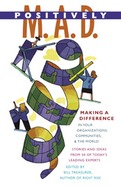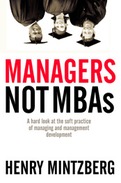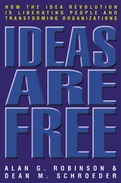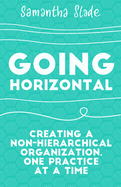2005
- Brings together 50 of Berrett-Koehler's top authors to share real world stories about making positive and lasting change, despite the challenges of our times
- Emphasizes people, actions, and ideas that are "mad"-out-of-the-ordinary, unexpected, counter-intuitive, defiant, offbeat, and edgy
Featuring contributions by more than 50 of Berrett-Koehler's most renowned authors, Positively M.A.D. is a collection of stories about real people making real changes, large and small, in their organizations and communities. The founder of an adoption agency specialzing in placing "unadoptable" children. A former big-city mayor, the son of a convict, who now works with the children of convicts. A psychiatrist who was able to take his severely ill patients to their first Chicago Bears game by unexpectedly tapping into the kindness of the fans. An office worker who transforms a malcontent colleague with the gift of a chocolate cake. A woman who salvages used computers and donates them to Africa.
These engaging, optimistic, "can do" vignettes-organized around twelve different "lessons" that provide the chapter headings-are designed to inspire people to resolve their disillusionment by getting off the couch and doing something.
As editor Bill Treasurer writes, "Regardless of our station in life, each of us is entitled, and perhaps obliged, to etch our initials onto the tree of humanity. Despite the complexity of the world's problems and inadequacies, and despite our own frustration with the current state of affairs, we can indeed Make A Difference."
- Brings together 50 of Berrett-Koehler's top authors to share real world stories about making positive and lasting change, despite the challenges of our times
- Emphasizes people, actions, and ideas that are "mad"-out-of-the-ordinary, unexpected, counter-intuitive, defiant, offbeat, and edgy
2005
“The MBA trains the wrong people in the wrong ways with the wrong consequences,” Mintzberg writes. “Using the classroom to help develop people already practicing management is a fine idea, but pretending to create managers out of people who have never managed is a sham.”
Leaders cannot be created in a classroom. They arise in context. But people who already practice management can significantly improve their effectiveness given the opportunity to learn thoughtfully from their own experience. Mintzberg calls for a more engaging approach to managing and a more reflective approach to management education. He also outlines how business schools can become true schools of management.
- Mintzberg, author of such classic bestsellers as The Rise and Fall of Strategic Planning and The Nature of Managerial Work, was named one of the Top 10 Management Thinkers in the World by the Financial Times
- The most extensive critique of management education and its effects on management practice ever published-showing how MBA programs train the wrong people in the wrong ways with the wrong consequences
- Offers proven alternatives for educating the right people in the right ways with the right consequences
2006
From simple ideas for saving time, effort, and money, to entirely new ways of doing business, front-line employees see a great many opportunities in their day-to-day work that their managers don't. Drawing on extensive research and experience in more than 300 organizations around the world—and including numerous illustrative examples—Alan Robinson and Dean Schroeder show precisely how to take advantage of the virtually free, perpetually renewable resource of employee ideas. Ideas Are Free shows managers how to tap all the ideas their employees have and gain significant advantage over their competitors.
- Outlines how to set up a truly effective system for soliciting, evaluating and implementing employee ideas for improvement --- a proven, low-cost source of potentially millions of dollars worth of added savings and revenue, and improved procedures and processes
- Shows why existing systems, such as the hopelessly antiquated "suggestion box", fall far short of the mark
- By the bestselling author of Corporate Creativity --- more than 40,000 copies sold
2018
In this book, self-management expert Samantha Slade presents seven concrete practices to help your organization flatten its existing hierarchy and develop a horizontal organization. The result will be enhanced creativity, greater growth, and a increased employee retention and productivity—and a better bottom line.
These days, more than ever, successful organizations must respond quickly and nimbly to change—they need every employee's best thinking. A horizontal organization creates an environment of true collaboration, respect, and openness. It allows everyone more freedom to express unconventional ideas or to work through issues that are getting in the way of organizational goals. And it's a more human way to organize—after all, we function perfectly well in our day-to day lives without someone telling us what to do.
But when an organization decides to go horizontal, it can be overwhelming for both managers and employees. Slade offers a practical, proven, incremental method to help organizations of all kinds and sizes ease in to a non-hierarchical model. She includes techniques for using your organization's purpose to stay focused and aligned, developing shared decision-making, creating a mutual feedback culture, nurturing autonomy, holding co-managed meetings, and maintaining an environment of collective learning.
Going Horizontal will help organizations become more adaptive, collaborative and innovative, which is vital in today's highly competitive and constantly-evolving world.























